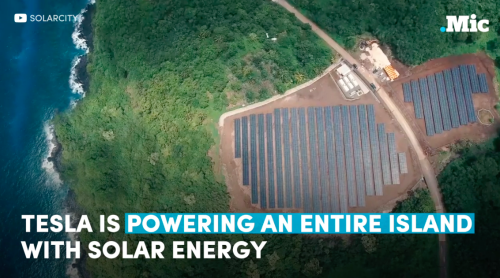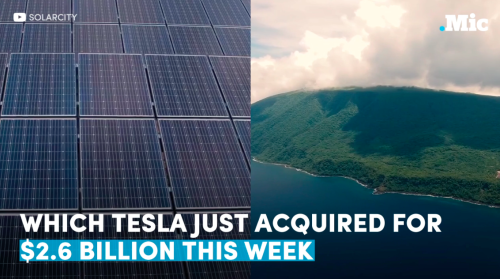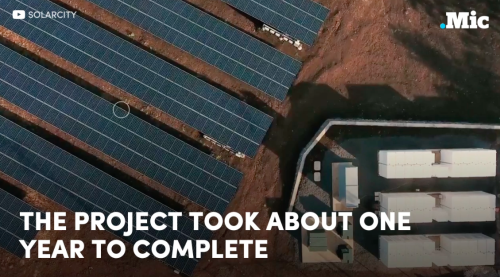Tesla Shows That A Future With Self-renewing Power Grids Is Closer Than We Thought (x) | Follow @the-future-now









Tesla shows that a future with self-renewing power grids is closer than we thought (x) | follow @the-future-now
More Posts from Mydickneedscpr and Others

“Allow yourself to become clear, expansive and all-pervasive like the vast sky that touches the stars. Observe (with inner detachment) the passing clouds of thought; therein lies the discovery of what was always here-now, the spaciousness of your Pure Being.” ~Anon I mus (Spiritually Anonymous)
What are your rights at a protest?

Animation by KAPWA Studioworks
Citizen activism is as American as apple pie. Whether you call it a protest, a parade, a tea party, a town hall, a march, a sit-in, a patriotic rally, a picket line, a free speech event, or a nonviolent demonstration, your right to stand up peacefully for what you believe in is protected by the US Constitution. Read the First Amendment:
“Congress shall make no law respecting an establishment of religion, or prohibiting the free exercise thereof; or abridging the freedom of speech, or of the press; or the right of the people peaceably to assemble, and to petition the Government for a redress of grievances.”
To learn how to turn protest into powerful change, watch this TED-Ed Lesson.
Ready to exercise your constitutionally protected right to protest? Before you go, know your rights. Below, read an excerpt from the American Civil Liberties Union guidelines for protestors. [For a pdf of the full ACLU ‘Know Your Rights’ guidelines for protestors, click here.]
Keep reading

Let’s Talk About Tax Brackets
Since some people (read: conservatives) are freaking out over the idea of TaXiNg RiCh PeOpLe, let’s talk about tax brackets.
Currently, we have seven tax brackets in the US, at rates between 10% and 37%. All income over $500,000 – whether that’s $500,001 or $1 billion – is taxed, at most, at 37%. What Alexandria Ocasio-Cortez has proposed is increasing the tax bracket so that people who are very rich and making millions of dollars a year would pay a higher tax bracket (70%).
The response is, basically, “But what if I suddenly get ten million dollars? Then I’ll have to pay 70% of my millions! That’ll make me worse off than if I merely had nine million!”
This comes up in shit around taxes a lot (”Don’t get a raise, you’ll have a higher tax bracket!”), so let’s address this using simple math.
Pretend that tax bracket goes like this: if you make $15 or less, you pay no taxes. If you make $16-30 dollars, they take away 10%. If you make $31-45, they take away 15%. At $46 or more, they take away 20%.
That doesn’t mean that if you make $16, you have that 10% taken from the total income. You don’t get $1.60 taken away from you. You have that 10% taken from every dollar you make over $15. In this case, only $1 is over $15, so only that dollar gets 10% taken out of it (and you lose $0.10). The rest of the money is taxed at the lower rate (which in this case is 0%).
Say that you make $42, so you’re taxed at 15%. So that means that every year, you pay $6.30, right?
No. You pay:
Nothing on the first $15 (0% of 15 is $0), plus
10% on all the money between $16 and $30 (10% of 15 is $1.50), plus
15% on all the money between $31 and 42 (15% of 12 is $1.80)
So actually you’re only paying $3.30. You have $38.70 left over.
Now you get a raise. You make $50, which pushes you into the next highest tax bracket. Oh, no, that means that they'll take away 20% of your $50, so you’ll have to spend a whole $10!
No. Let’s do the math again.
You pay:
Nothing on the first $15 (0% of 15 is $0), plus
10% on all the money between $16 and $30 (10% of 15 is $1.50), plus
15% on all the money between $31 and $45 (15% of 15 is $2.25), plus
20% on all the money over $45 (20% of $5 is $1)
So actually, you’re only paying $4.75. You have $45.25 left over.
So if there’s a 70% tax bracket on, say, 10 million dollars or more, it doesn’t mean that the second you make 10 million (something that almost no one in this country makes to begin with), you start getting taxed at 70% and they take away 7 million. The first $9,999,999 are still taxed in the lower brackets. They just take away 70 cents from the ten millionth dollar.

Government is supposed to address the problems a country is facing. Global warming, infrastructure collapse, funding failures in education, research, the point of government is to ensure that a country is thriving based on its principles.
The GOP tax bill doesn’t address any of our country’s pressing problems. We’re suffering from a massive underinvestment in infrastructure, but instead of coming up with a way to fund these projects, we’re repealing the estate tax. Instead of better funding academic programs and scientific research, we’re cutting corporate taxes without fixing the loopholes that help corporations avoid paying taxes in the first place.
This disconnect between what the government is doing and actual governance is jarring, not only because it will put America further behind rising superpowers like China, but also because it erodes Americans’ trust in democracy. Why vote, why participate in democracy, why believe in democracy if it doesn’t solve our problems?
This tax bill isn’t just a bad bill. It contributes to an existential crisis in America that only continues to deepen.

Square Fusion



Lobbying, to most people, looks like bribery — the lobbyist who refuses to contribute to the reelection campaign isn’t going to get a meeting, much less an ally.
No member of congress wants to feel bought. What they want to feel is convinced. It’s the lobbyist’s job to make the members of congress ‘feel’ like they’re making the right decision, not just the decision they were paid to make.
Lobbying, persuasion, or interest representation is the act of attempting to influence the actions, policies, or decisions of officials in their daily life, most often legislators or members of regulatory agencies. Lobbying is done by many types of people, associations and organized groups, including individuals in the private sector, corporations, fellow legislators or government officials, or advocacy groups (interest groups). Lobbyists may be among a legislator’s constituencies, meaning a voter or bloc of voters within their electoral district, or not; they may engage in lobbying as a business, or not. Professional lobbyists are people whose business is trying to influence legislation, regulation, or other government decisions, actions, or policies on behalf of a group or individual who hires them. Individuals and nonprofit organizations can also lobby as an act of volunteering or as a small part of their normal job (for instance, a CEO meeting with a representative about a project important to their company, or an activist meeting with their legislator in an unpaid capacity). Governments often define and regulate organized group lobbying that has become influential.
More research below:
How Corporate Lobbyists Conquered American Democracy Is Lobbying Good or Bad? Transparency and the Lobby Problem The Lobbying Problem and How We Can Fix It Corporate Lobbying: Bad for Business, Bad for America Influence & Lobbying Lobbying wiki Lobbying: The Scourge of Good Government What is shadow lobbying? How influence peddlers shape policy in the dark The American lobbying industry is completely out of control Lobbyists Explained Lobbyist Documentary Lobbyists in America 5 Crazy Facts About Lobbyists – End corruption. Defend the Republic
-
 foxfiresreblogs reblogged this · 5 months ago
foxfiresreblogs reblogged this · 5 months ago -
 f0xf1res liked this · 5 months ago
f0xf1res liked this · 5 months ago -
 bastionofbibliophiles liked this · 9 months ago
bastionofbibliophiles liked this · 9 months ago -
 hereticcryptid reblogged this · 9 months ago
hereticcryptid reblogged this · 9 months ago -
 daughterofsmokeandblood reblogged this · 9 months ago
daughterofsmokeandblood reblogged this · 9 months ago -
 beautifulwickedness13 liked this · 9 months ago
beautifulwickedness13 liked this · 9 months ago -
 t0nuka liked this · 9 months ago
t0nuka liked this · 9 months ago -
 jacknerox liked this · 9 months ago
jacknerox liked this · 9 months ago -
 blacksmithsghost liked this · 9 months ago
blacksmithsghost liked this · 9 months ago -
 s0raaaaaa liked this · 9 months ago
s0raaaaaa liked this · 9 months ago -
 rainbowpineapplebottle liked this · 9 months ago
rainbowpineapplebottle liked this · 9 months ago -
 unexplodedseedbomb liked this · 9 months ago
unexplodedseedbomb liked this · 9 months ago -
 vlodwassiliew liked this · 9 months ago
vlodwassiliew liked this · 9 months ago -
 jeza-red reblogged this · 9 months ago
jeza-red reblogged this · 9 months ago -
 thepurplewombat reblogged this · 9 months ago
thepurplewombat reblogged this · 9 months ago -
 thepurplewombat liked this · 9 months ago
thepurplewombat liked this · 9 months ago -
 sweetdogpic reblogged this · 1 year ago
sweetdogpic reblogged this · 1 year ago -
 niethathicormi liked this · 1 year ago
niethathicormi liked this · 1 year ago -
 labyrinth-of-lily liked this · 2 years ago
labyrinth-of-lily liked this · 2 years ago